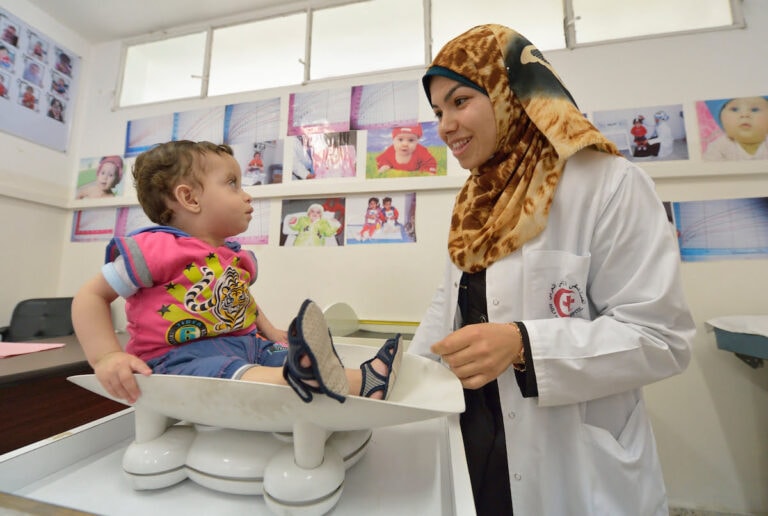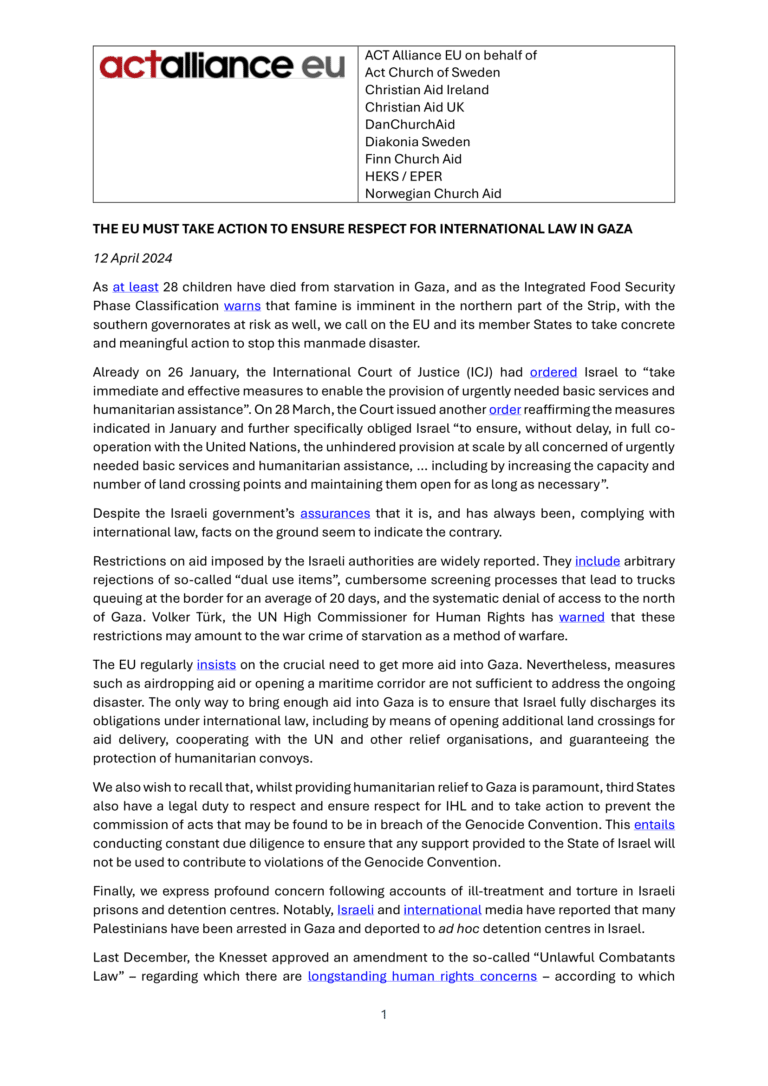Care is a vital part of the economy and one which takes myriad forms, from large government-backed projects to everyday acts of kindness: it’s coming home to a hot dinner, going to the dentist for a check-up, receiving a kind text from a friend, training for a job.
The care economy refers to all the paid and unpaid labour that goes into providing caregiving in all its forms. At home, it encompasses household chores, childcare, looking after the sick and elderly, and collecting water or fuel. In the paid economy, it spans sectors including education, healthcare and social services. And women do the bulk of it.
Indeed, women represent 67% of health and social workers worldwide, and 80% of paid domestic workers. They also perform more than three-quarters of unpaid domestic and care work.
Undervalued, underpaid
Care work is generally badly paid, if at all. A 2023 study from the British TUC union found that social care workers in the UK earned only 65% of the median salary for all UK workers. Childcare workers, meanwhile, earned just 56%.
It is also insecure. 90% of domestic workers worldwide lack access to social security, and over half have no restrictions on their working hours. Yet we know social protection is particularly important for women and girls.
The COVID-19 crisis highlighted the vital role of care work in society and the economy, as parents juggled home-schooling and teleworking, and hospitals struggled to cope with the influx of patients. Yet for all its importance in supporting human and social capital, the care economy is often overlooked in policy and social planning.
A caring economy recognises and supports the sharing of care as an intrinsic part of the social fabric. It promotes the wellness and development of people regardless of class, race, ability, or gender.
Gender and the care economy
Gender inequality is at the root of the current crisis in health and social care worldwide. According to a 2024 WHO study, chronic underinvestment in the healthcare sector has resulted in many women lowering their hours or leaving the labour market altogether, in order to care for ailing relatives at home. This pattern undermines women’s empowerment and obstructs progress towards gender equality.
Developing a care economy means addressing these patriarchal structural inequalities. We need a shift to economies and societies that value and recognise women’s activities. Governments must prioritise investment in care and advance people’s rights. The ongoing unequal distribution of unpaid domestic care work between women and men is fuelled by firmly rooted societal norms. Women are often expected to shoulder a greater burden of household chores and childcare, regardless of their employment status. This expectation can result in women having less time to pursue paid employment and other opportunities outside the home. Limited access to economic resources, such as credit, capital and land can further reinforce these gendered divisions of labour.
Strengthening social protection systems will bolster care work and help advance rights for women, girls, and LGBTQI individuals. To shift towards an economy that values care, we need to provide more financial support to care workers and providers. We must also invest in public childcare, care for the elderly and care for people with disabilities.
Why investing in care makes economic sense
There’s also a strong economic argument for investing in social protection. According to a report by the International Labour Organisation, addressing current gaps in care policy and expanding care services with jobs of quality could generate nearly 300 million jobs by 2035. This would help diminish gender disparities in employment and result in substantial social and economic benefits. What is more, investing in the care sector could create almost three times the number of jobs as investing the same amount in construction, while also producing 30% fewer greenhouse gas emissions. Most of these jobs will benefit women.
Paid and unpaid care services enable people to lead independent and fulfilling lives. They are key indicators of societal health and well-being and should therefore be given prominence alongside traditional economic metrics such as financial balances and the production of tradable goods and services.
Policies ought to be based on these indicators to enhance recognition of the vital role that women play in economic life and promote a more comprehensive understanding of societal progress.
ACT Alliance EU can play a vital role in raising awareness of the need to move away from an economy that exploits and disregards care work. This is embodied in a faith narrative and shared commitment to caring for our common home together, with cooperation and solidarity rooted in justice, care, and sustainability.


